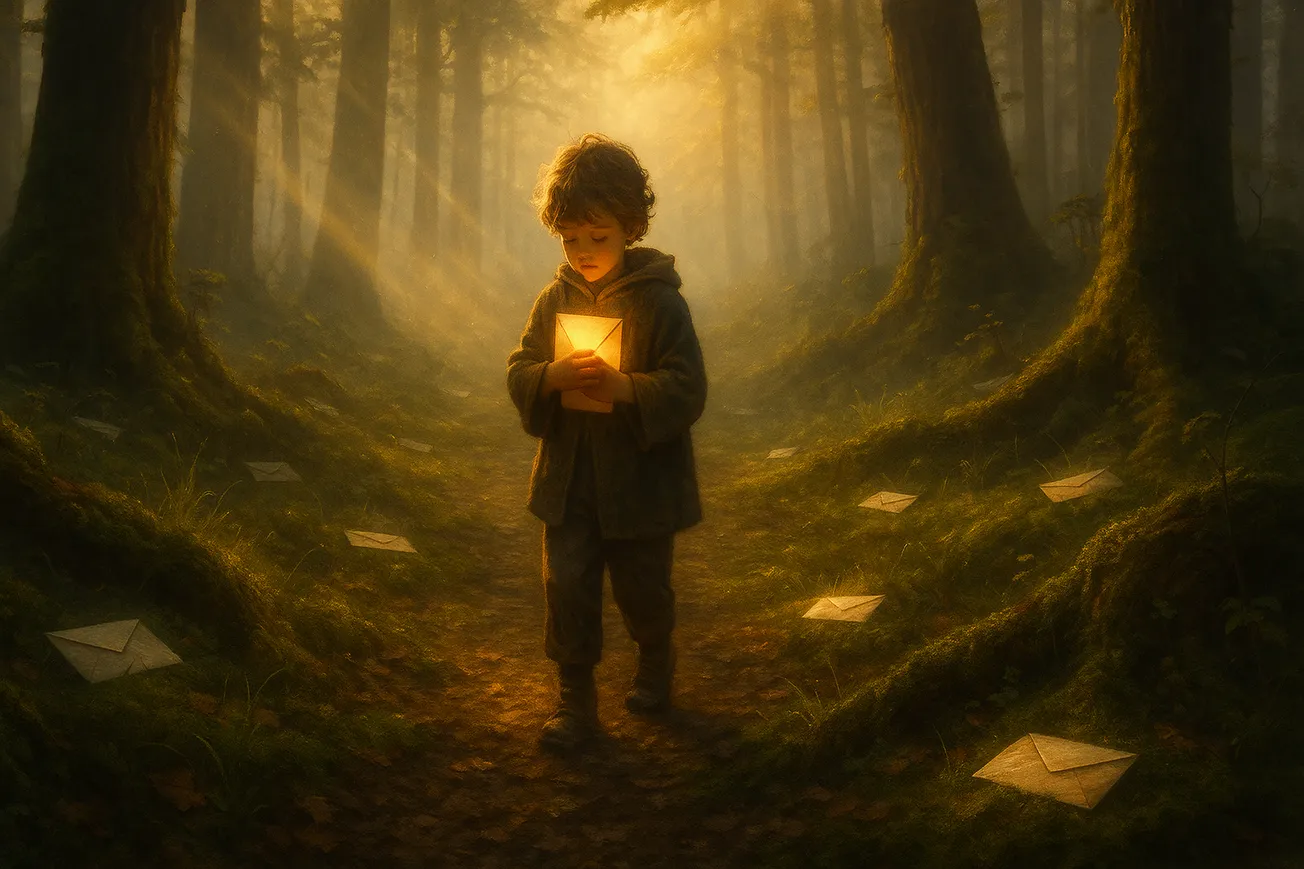🌈 The Fractal Story Engine | Death & Beyond (Afterlife) | (18) DB-002-R
There is a strange tenderness in knowing how something ends.
Not in the way a spoiler ruins a film, but in the way a final note can deepen a song.
To be born with a letter from Death is not a curse. It is not even a warning. It is a mirror we are asked to carry, one that reflects not just the closing, but the entire shape of the life we live.
Most of us try not to look. We keep the envelope at the bottom of a drawer, taped to the underside of a desk, tucked into the lining of a winter coat we never wear. We pretend not to know it is there. We go to meetings. We fall in love. We water the plants and forget the names of stars.
And yet the letter does something, even unopened. It makes time feel like breath: held closer, used slower, sometimes panicked, sometimes holy.
Some cultures speak of the memento mori, a skull on the desk, a reminder that all things end. But perhaps this letter is something softer. Less a skull, more a seed. Not a warning, but a weight. A reminder that all things unfold toward their dissolution, and that the beauty is not despite that, but because of it.
In a world like ours, where urgency is confused with purpose, and distraction has been weaponized into a lifestyle, the idea of carrying a letter from Death is radical. It slows the pulse. It asks us to look again at what we thought was disposable: the way a child pauses before speaking, the way old paint flakes in the sun, the way someone we love says our name when they’re tired.
It is not about fear.
It is not about control.
It is about attention.
What would change if you read your letter each morning? Would you hoard less? Would you listen better? Would you allow yourself to feel the things you usually set aside for later: grief, wonder, longing, joy?
The letter does not give instructions.
It only gives permission.
To live as if your time is a gift.
To speak only what needs saying.
To notice the petals on the floor.
And one day, to return the envelope, creased, tear-stained, possibly unopened, but held close all your life.
What can the reader learn from this story?
The inevitability of death is not a threat but a teacher. When we carry the knowledge of our own ending gently, it shapes how we live. It affects how present we are, how much we value love over noise, and meaning over speed. To hold death close is to choose life more deliberately.

